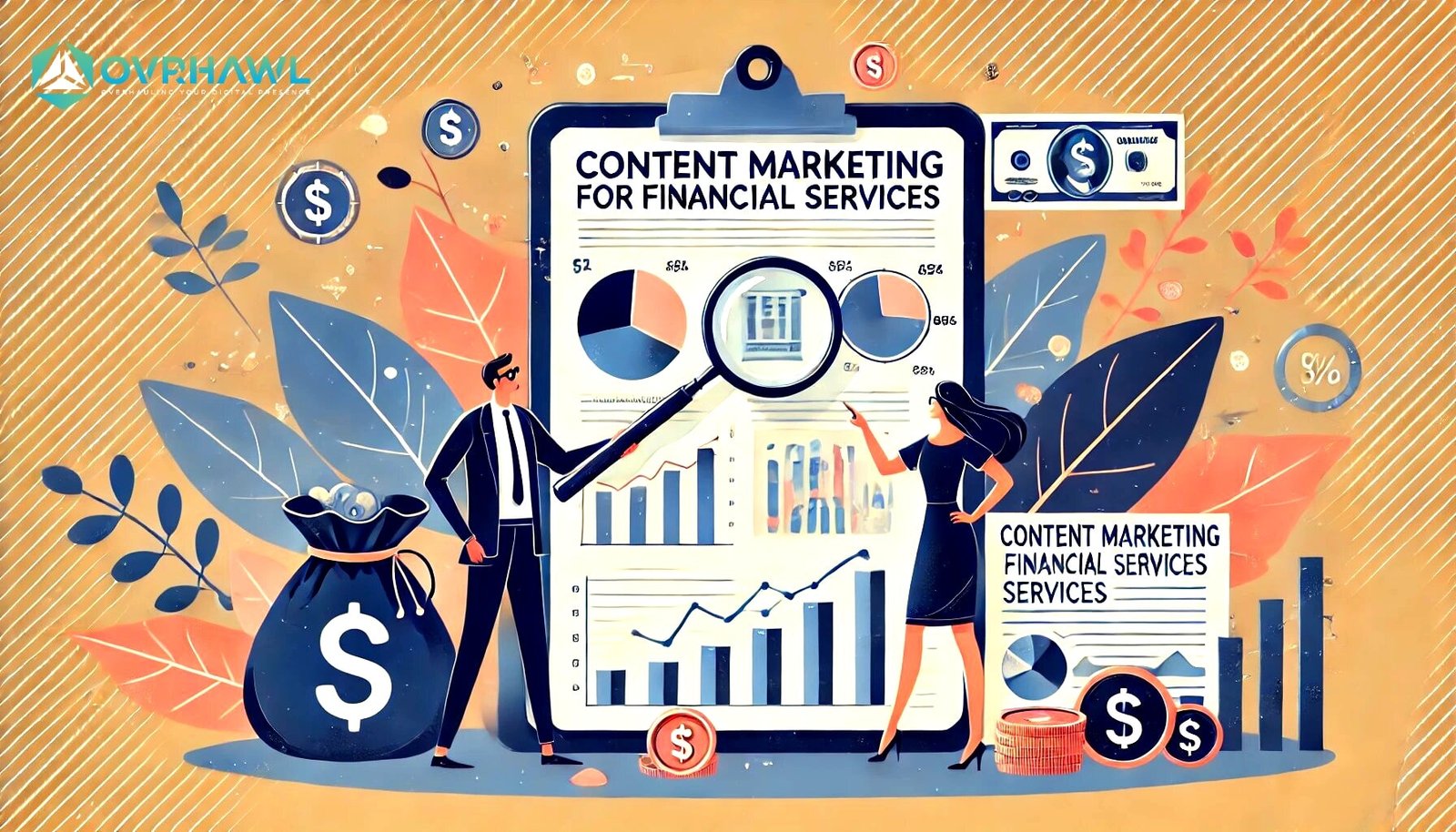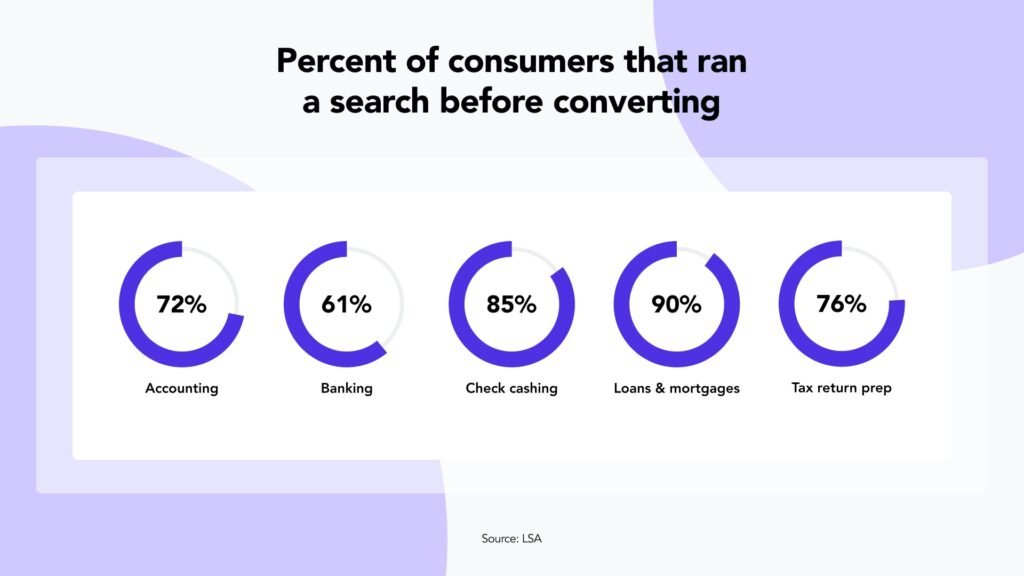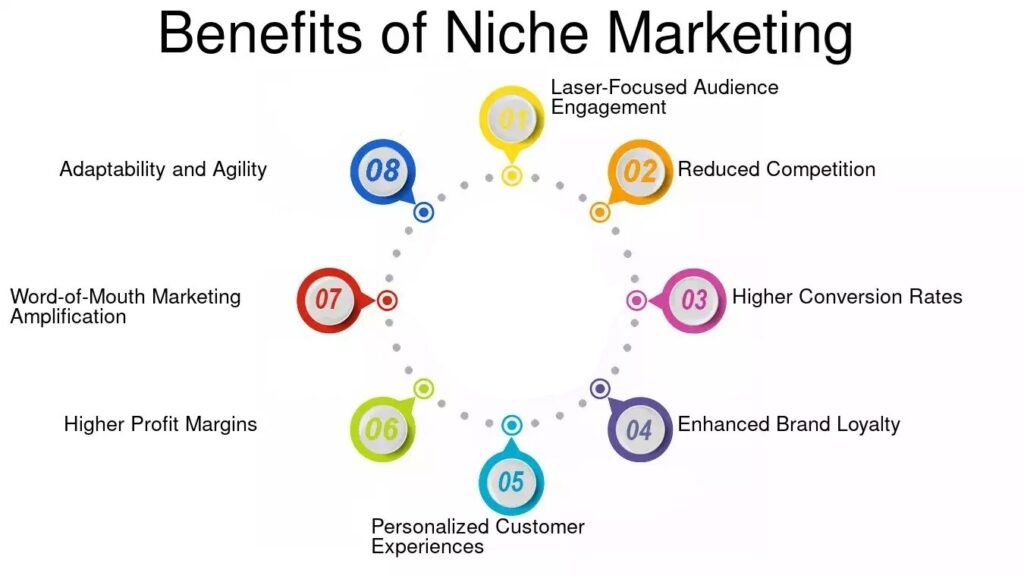
Content marketing has become an essential strategy for businesses across all industries, and financial services are no exception. In a sector built on trust and expertise, content marketing can bridge the gap between complex financial concepts and customer understanding. From driving lead generation to building lasting client relationships, an effective content marketing strategy can help financial professionals stand out in a competitive market.
This comprehensive guide will explore the benefits, strategies, and best practices for content marketing for financial services, including actionable content ideas, measurement techniques, and common mistakes to avoid.
Introduction to Content Marketing in Financial Services
• Definition and Importance of Content Marketing
Content marketing involves creating and sharing valuable, relevant content to attract, engage, and retain a target audience. For financial services, this means breaking down complex topics, addressing client pain points, and positioning your brand as a trusted authority.
• Overview of the Financial Services Industry Landscape
In today’s digital-first world, financial clients increasingly research online before making decisions. According to Edelman Trust Barometer, 81% of people trust advice from a financial professional who shares educational content. This highlights the role of content marketing in building trust and credibility in a competitive industry.
The financial services industry is vast and dynamic, encompassing sectors such as banking, wealth management, insurance, investment services, and fintech. It operates in a highly competitive environment where building trust and credibility is paramount. With clients making critical decisions about their finances, financial services providers must position themselves as knowledgeable and reliable sources of information.
The industry has undergone significant transformation, driven by advancements in technology and changing consumer expectations. This has created an urgent need for businesses to offer educational, transparent, and easily accessible information. Content marketing plays a critical role in bridging the gap between complex financial topics and consumer understanding, allowing businesses to meet these evolving demands.
However, strict regulations from bodies like FINRA, the SEC, and FCA present challenges for creating engaging marketing campaigns. Financial content must be compliant, accurate, and transparent to maintain trust and avoid penalties.
In this competitive and regulated landscape, businesses that effectively utilize content marketing can differentiate themselves. By addressing client needs with valuable content, financial service providers can not only attract new clients but also nurture lasting relationships and retain a competitive edge.

Benefits of Content Marketing for Financial Services
• Building Trust and Credibility with Clients
Financial services often deal with high-stakes decisions, so clients look for trustworthy advisors. Informative and transparent content can build that trust by demonstrating your expertise and commitment to client success.
• Enhancing Client Engagement and Retention
Content marketing provides ongoing touchpoints with clients. Whether through newsletters, blog posts, or webinars, consistent engagement can keep your services top-of-mind and encourage long-term relationships.
• Driving Lead Generation and Business Growth
Educational content can attract potential clients actively searching for solutions to their financial challenges. For example, a blog post about retirement planning can convert visitors into leads by linking to a free consultation or e-book download.
Developing an Effective Content Marketing Strategy
• Identifying Target Audience and Personas
Understand your audience’s demographics, pain points, and preferences. For instance, a financial advisor may target young professionals seeking investment guidance or retirees needing estate planning services.
• Setting Clear Objectives and KPIs
Define what success looks like. Whether it’s increasing website traffic, generating leads, or boosting email sign-ups, set measurable goals to guide your strategy.
• Creating a Content Calendar and Workflow
A content calendar ensures consistency and alignment with your business goals. Plan content around key events like tax season, end-of-year planning, or economic updates to stay relevant.
Content Ideas and Formats for Financial Services
• Educational Blog Posts and Articles
Share actionable insights like:
- “10 Investment Mistakes to Avoid in 2024”
- “How to Save for Your Child’s College Education”
- “The Benefits of Diversifying Your Portfolio”
• Whitepapers and In-Depth Reports
These long-form pieces demonstrate thought leadership and can be gated behind a sign-up form for lead generation. Topics might include “The Future of Sustainable Investing” or “Tax Strategies for High-Net-Worth Individuals.”
• Webinars and Live Q&A Sessions
Host live events to answer common questions, such as “Understanding Cryptocurrency” or “Preparing for Retirement.” These sessions encourage interaction and position your brand as approachable and knowledgeable.
• Infographics and Visual Data Representations
Simplify complex financial data into visually appealing infographics. Examples include “How Compound Interest Works” or “Trends in Real Estate Investing.”
• Case Studies and Client Success Stories
Highlight real-world examples of how your services have helped clients achieve their financial goals. These stories build trust and provide social proof.
• Podcasts and Audio Content
Offer weekly or monthly podcasts discussing market trends, financial tips, or interviews with industry experts.

Best Practices for Content Marketing in Financial Services
• Ensuring Compliance with Industry Regulations
Financial services must adhere to strict regulations. Ensure all content complies with guidelines from organizations like FINRA, SEC, or FCA to avoid penalties.
• Personalizing Content to Address Client Needs
Tailor content to different audience segments. For example, young professionals may prefer digital investment tips, while retirees may look for estate planning advice.
• Leveraging Multiple Channels for Content Distribution
Share your content on your website, social media platforms, and email newsletters to maximize reach. Use LinkedIn for professional articles and Instagram for engaging infographics.
• Utilizing Data Analytics to Inform Content Decisions
Track metrics like page views, time on page, and conversion rates to determine what resonates with your audience. Tools like Google Analytics and HubSpot can provide valuable insights.
Measuring the Effectiveness of Content Marketing Efforts
• Key Metrics to Monitor
- Engagement: Time spent on articles, social shares, and comments.
- Conversions: Leads generated from gated content or sign-ups.
- Reach: Website traffic, email open rates, and impressions.
• Tools and Platforms for Analytics and Reporting
Use tools like Google Analytics for website metrics, SEMrush for SEO tracking, and HubSpot for lead and campaign analysis.
• Adjusting Strategies Based on Performance Data
Regularly review your content’s performance. For example, if a blog on tax tips generates high engagement, consider creating a related e-book or webinar.
Common Mistakes to Avoid in Financial Services Content Marketing
• Overly Promotional Content
Focus on educating and solving problems rather than hard-selling your services. Clients value helpful advice over aggressive pitches.
• Neglecting Compliance and Legal Considerations
Always ensure content aligns with financial regulations. Review content with legal or compliance teams before publishing.
• Failing to Update and Refresh Content Regularly
Outdated content can harm credibility. Regularly audit your website to ensure all information is current and relevant.
Case Studies: Successful Content Marketing in Niche Financial Areas
• Wealth Management Firms Utilizing Educational Content
A wealth management firm increased lead generation by publishing a blog series on retirement planning and promoting it through LinkedIn.
• Insurance Companies Engaging Clients Through Interactive Tools
An insurance company created an interactive calculator for clients to estimate life insurance needs, generating thousands of leads.
• Fintech Startups Building Brand Awareness via Social Media
A fintech company used Instagram to share simple financial tips and partnered with influencers to reach younger audiences.

Why Choose Our Agency for Your Content Marketing Needs
Content marketing for financial services requires a balance of creativity, compliance, and strategic planning. Our agency specializes in crafting tailored content marketing strategies that resonate with your target audience while adhering to industry regulations. Whether you’re a financial advisor, insurance provider, or fintech company, we have the expertise to create impactful, compliant content that drives results.
We offer comprehensive digital marketing services at a fraction of the industry cost, covering everything from SEO and website optimization to social media management and content creation. Unlike most agencies that charge thousands per month for individual services, our all-inclusive packages are designed to deliver exceptional value without the heavy price tag.
No matter the size of your business—startup, small firm, or established organization with a limited budget—our solutions are scalable and cost-effective. With our unrivaled support and dedication to your success, we’ll help your financial services business build trust, attract clients, and grow. Contact us today, and let’s transform your digital presence!
Elevating Your Financial Services Through Content Marketing
Content marketing is a powerful tool for financial professionals to build trust, engage clients, and drive business growth. By creating valuable, compliant content and distributing it strategically, financial services firms can stand out in a competitive industry.
Ready to take your content marketing to the next level? Contact us today and let’s start transforming your digital presence with a comprehensive content marketing strategy.
FAQs About Content Marketing for Financial Services
1. What is content marketing, and why is it important for financial services?
Content marketing involves creating valuable content to engage and educate your audience. For financial services, it builds trust and positions your brand as an expert.
2. How can I ensure my content complies with financial industry regulations?
Work with legal and compliance teams to review all content. Use disclaimers where necessary and adhere to guidelines from regulatory bodies like FINRA or FCA.
3. What types of content are most effective for engaging clients?
Blog posts, webinars, whitepapers, and infographics are highly effective. Tailor content to address specific client needs and preferences.
4. How do I measure the success of my content marketing efforts?
Track metrics like engagement, conversions, and website traffic using tools like Google Analytics and HubSpot.
5. How often should I update my content?
Review your content quarterly to ensure it’s up-to-date and relevant, especially for topics like tax laws or market trends.
6. Can I manage content marketing in-house, or should I hire an agency?
While managing in-house is possible, working with an agency ensures professional, compliant strategies that drive measurable results.